24-hour economy not about night fufu chop bars – Nii Moi Thompson schools Bawumia
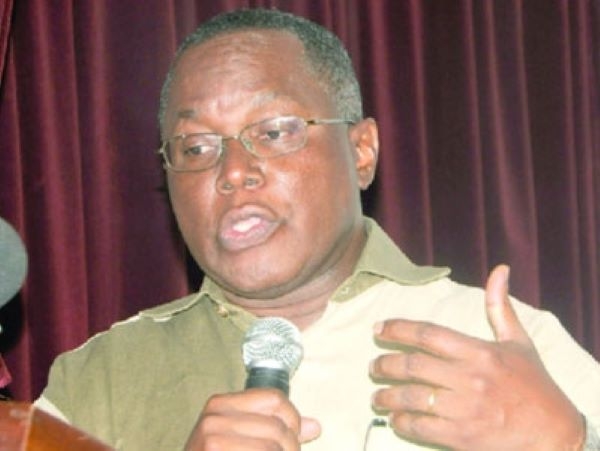 Dr Nii Moi Thompson
Dr Nii Moi Thompson
Vice President Mahamudu Bawumia must know that a 24-hour economy is not about having night chop bars for fufu and fried rice, economist Nii Moi Thompson has said.
In an article on the topic, Dr Thompson said Dr Mahamudu Bawumia's claim that Ghana already has a 24-hour economy thanks to his government's digitalisation drive, betrays his ignorance of the subject.
Mr Mahama recently re-echoed the 24-hour economy proposal when he met the Ghana Trade Union Congress, whose Secretary General Yaw Baah described it as a game-changer.
Following that encounter, Dr Bawumia reminded Ghanaians on one of his campaigns that the country already has a thriving 24-hour economy. He cited hospitals, fuel stations and chop bars as proof and then promised “a new vision” complete with a “new policy” that would “transform this country.”
He also berated Mr Mahama as not having any understanding of his own policy, noting: "It does not make sense”.
However, Dr Thompson, in his article, said if Dr Bawumia’s idea of a 24-hour economy, "is about building more chop bars across Ghana to ensure round-the-clock access to fufu or fried rice, then he is even more rudderless than he has proven in the past seven years".
He said: "A 24-hour economy is about more than keeping a few establishments open around the clock – or lighted Astro Turfs at night. It’s a multi-dimensional strategy for economic transformation, where businesses that operate during the day are strengthened and conditions are created for others across the country – not just Accra – to rise or thrive in an inter-connected world that never sleeps. It’s about a country living to its fullest potential, not settling for mediocrity over chop bars"
Read Dr Nii Moi Thompson's full article below:
Bawumia, chop bars, and the 24-hour economy
When former president and flag bearer of the National Democratic Congress (NDC), John Dramani Mahama, declared a 24-hour economy as his main strategy for transforming Ghana’s development fortunes, his adversaries across the pond probably dismissed it as just another campaign talk.
That is, until the Secretary General of the Trades Union Congress, Dr. Yaw Baah, an economist, described the strategy as “a game changer”. And then panic set in across the pond, and even inside it.
For some crazy reason, those adversaries reduced the idea of a 24-hour economy to having fun at night Hence, in the 2024 budget, the finance minister tried to upstage Mr. Mahama by promising everything from “a Night and Sport Economy” (p. 92) to “the Night Economy and tourism” (p. 92) to the development of Black Star Square into a “City Light Centre…to drive the night economy in Accra… [and create] a welcoming night-time environment…” (p. 92), and, finally, to the use of Astro Turfs to create “vibrant night economies” in their host communities (p.93). (For the record, the word “night” appears only once in the 2023 budget, in reference to patrols by immigration officers).
Not to be outdone by the finance minister, the vice president and chairman of the economic management team, Dr. Mahamudu Bawumia, who will be contesting Mr. Mahama in the December 2024 presidential election, reportedly said at a political rally that Mr Mahama “doesn’t understand his own policy” and that “it does not make sense”.
He went on to remind his audience that Ghana already has a thriving 24-hour economy, citing hospitals, fuel stations and chop bars – yes, he did! – as proof. He then promised “a new vision” complete with a “new policy” that would “transform this country.”
The news report gave no details about this vision. But if his idea of a 24-hour economy, beyond the nightlife of the finance minister, is about building more chop bars across Ghana to ensure round-the-clock access to fufu or fried rice, then he is even more rudderless than he has proven in the past seven years.
A 24-hour economy is about more than keeping a few establishments open around the clock – or lighted Astro Turfs at night. It’s a multi-dimensional strategy for economic transformation, where businesses that operate during the day are strengthened and conditions are created for others across the country – not just Accra – to rise or thrive in an inter-connected world that never sleeps. It’s about a country living to its fullest potential, not settling for mediocrity over chop bars.
When the idea of a 24-hour was originally proposed in the 40-Year National Development Plan, it was partly to address unemployment from what the Plan called the “technological upheavals” of the future, such as robotics, AI, and 3D printing, that would displace workers in many traditional and high-value sectors. The strategy, as laid out in the Plan, aimed at three shifts of 8 hours each and 4 shifts of 6 hours each, depending on a “productivity revolution,” which was also proposed in the Plan.
The strategy, which was subsequently incorporated into the NDC’s 2020 manifesto, alongside transformative policies like an Employment Act (to complement the Labour Act) and a jobs programme called Edwuma Pa (Good Work), also recognised the availability, dependability AND increased use of electricity (a measure of a growing economy) as a pre-condition and one of 10 key drivers of a productive 24-Hour economy. Specific targets for electricity consumption, measured by kilowatt-hour (kWh) per capita, were therefore set, and Dr. Bawumia’s government inherited more than enough electricity from Mr. Mahama in 2017 to meet those targets. They didn’t.
Instead, they blamed Mr. Mahama for giving Ghana “too much electricity,” when the real problem was too little economic activity due to the bankrupt economic policies that they initiated the moment they took office, destroying the financial sector and subverting industrial activity. Thus, they missed the critical first-years targets.
For example, in 2018, the government attained only 452 kWh per capita, instead of the projected 620 kWh, and in 2021 it managed 548 kWh instead of 850 kWh; it is unlikely that they would meet the 1,433 kWh target for 2025.
The consequences of these “fatal errors” were predictable: Manufacturing growth declined from 14.24% in the first quarter of 2017 to 6.32% in the last quarter of 2019, while electricity use by the economy peaked at 20.82% in the first quarter of 2018 and then plunged to 0.90% in the third quarter of 2019, all before Covid and Ukraine, which are now the whipping boys of their mismanagement.
The latest data from the Ghana Statistical Service show that the economy has still not recovered from the wrong-headed policies of Dr. Bawumia and his team. The manufacturing sector shrank by 2.5% in the first three months of 2023 and by 0.5% in the next three, inevitably worsening unemployment. (His voodoo claim of creating 2.3 million jobs in a collapsing economy will be tackled another time).
Significantly, and despite popular perceptions, Mr. Mahama has perhaps the best record of any president, except Kwame Nkrumah, in providing electricity to Ghanaians, after inheriting dumsor, which had plagued Ghana intermittently since 1983. The following are the average annual growth rates for installed electricity (by Megawatt) under the four most recent presidents, based on data from the Energy Commission:
·JAK: 1.2% (2001-2004)
·JAK: 3.6% (2005-2008)
·JAM: 3.7% (2009-2012)
·JDM:15% (2013-2016)
·NAA: 8.1% (2017-2020)
· NAA:1.1% (2021-2022)
Even chop bars, taflatse, need electricity, and Dr. Bawumia has woefully failed to provide that. It is doubtful that he would do any better. Now or ever.
Nii Moi Thompson
22/11/2023
“What others have done, we can do.” – Marcus Garvey.
Source: classfmonline.com
Trending News
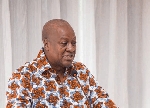
Profiles of 10 regional ministers-designate nominated by President Mahama
23:13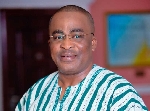
NDC exposes three police officers allegedly involved in looting of state establishments
13:44
NALAG President urges President Mahama to prioritise experienced Assembly Members and women in MMDCE appointments
00:48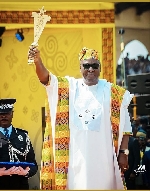
Eastern Youth Development Association congratulates President Mahama
11:39
Justina Nelson: President Mahama appoints Acting CEO for Minerals Income & Investment Fund
21:53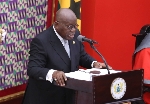
Don’t be scared; we won’t default on our debt obligations – Ato Forson to Akufo-Addo
11:43
NIA assures 500 contract staff of settling salary arrears
12:18
CARE Ghana raises concerns over 2024 election security lapses
12:01
V/R: President John Dramani Mahama nominates James Gunu as regional minister-designate
21:43
Dialysis Center at Upper East Regional Hospital faces possible shutdown over funding challenges
12:23



